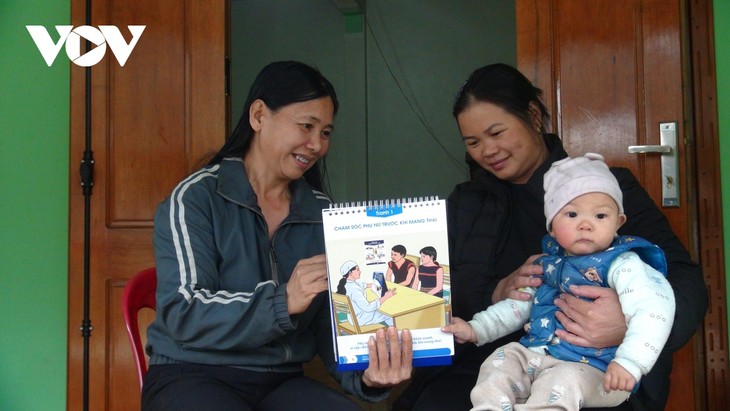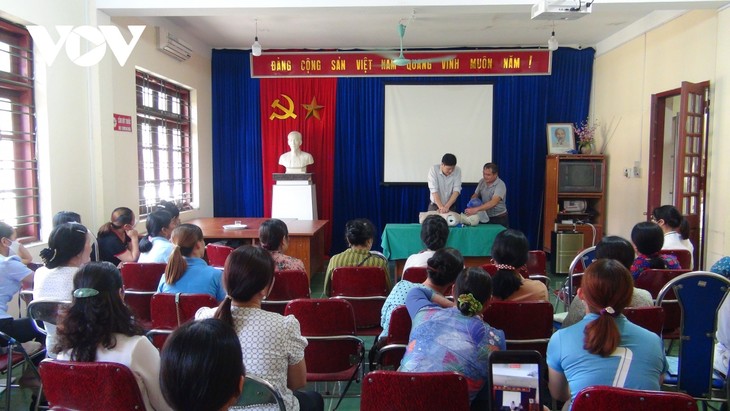(VOVWORLD) - Despite the hardships of working in remote villages, many responsible, dedicated medical workers have fulfilled their mission of protecting people’s health.
 Ms. Trieu Thi Tu (left) teaches local women how to take care of their babies. (photo: VOV) Ms. Trieu Thi Tu (left) teaches local women how to take care of their babies. (photo: VOV) |
Trieu Thi Tu, a medical worker in Cuon 2 hamlet, Ngoc Phai commune, Bac Kan province has over the past 20 years cared for 80 local households. The communal clinic is far from the hamlet, so Ms. Tu has to come to the houses of pregnant women or sick people at any hour of the day.
Trieu Thi Chung, a resident of Cuon 2 hamlet, said: "Previously, I didn’t know anything prenatal care, prenatal examinations, or nutrition. Ms. Tu gave me advice on prenatal care and vaccination during pregnancy. She is very enthusiastic and dedicated. She visits us for medical care and sometimes buys medicines for us."
 A training for village medical workers (Photo: VOV) A training for village medical workers (Photo: VOV) |
As some hamlets are tens of kilometers from the communal clinic, local medical staff play a very important role in health care and protection. They are the vanguard of disseminating information about environmental safety, food hygiene, and disease prevention and control. Hoang Van Quy, a medical worker at the clinic in Khau Dang village, Boc Bo commune, said he and other local medical staff often travel kilometers through the forest at night to visit sick people.
"I’ve been working here since 2001. It was very difficult at first. After years of learning and adapting, it’s now easier. When I learn that somebody is sick, I visit them to give first aid and if their condition is serious, I tell them to go to a hospital for treatment," said Quy.
During the COVID-19 pandemic, village doctors visited every house to give people advice on disease prevention and containment. Trieu Dinh Tiep, Head of the Clinic of Ngoc Phai commune, said that thanks to the village doctors, every child was vaccinated and pregnant women received adequate care.
"Village doctors have contributed greatly to primary health care for the people. Despite difficulties and low pay, they have done their best to protect people’s health, particularly in ethnic minority villages. They also keep us update on the health of the local people so we can prevent any disease from spreading," said Phai.
The network of village health workers plays a very important role in health communication and education, and helping people in remote and inaccessible areas receive medical care. With their dedication and sense of responsibility, the village health teams contribute to national target programs on health care and improve the lives of ethnic minorities.